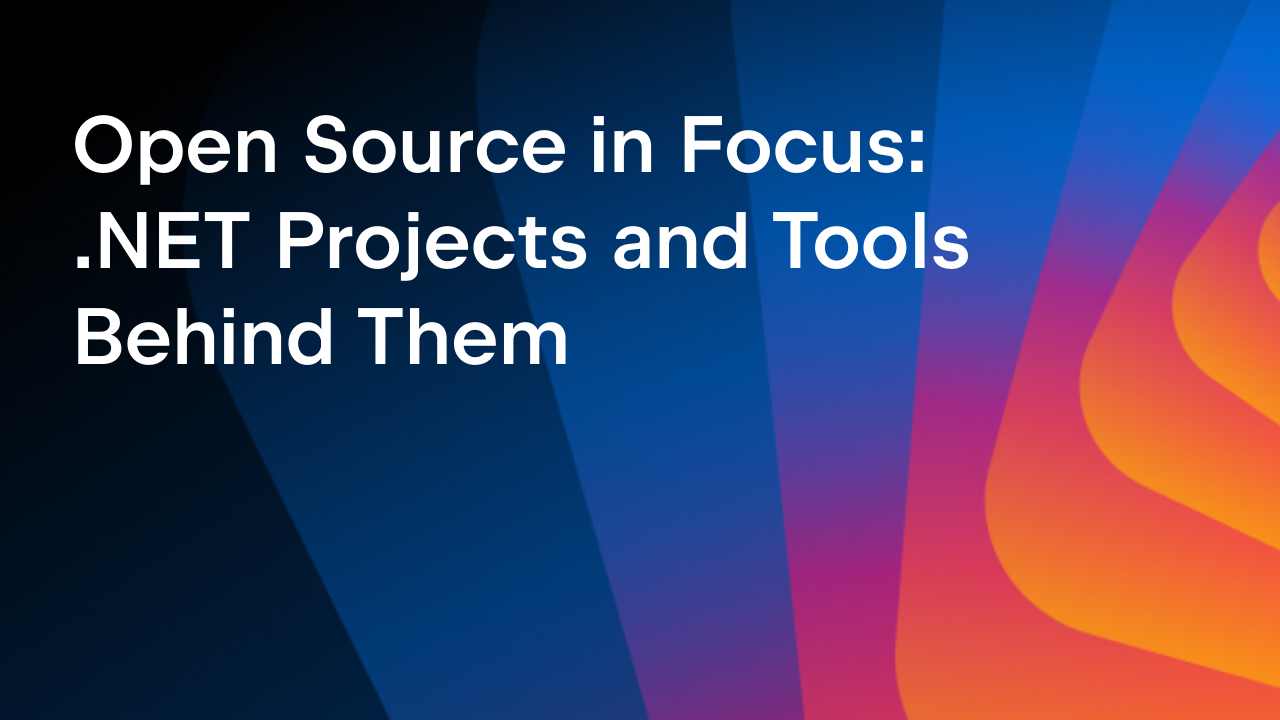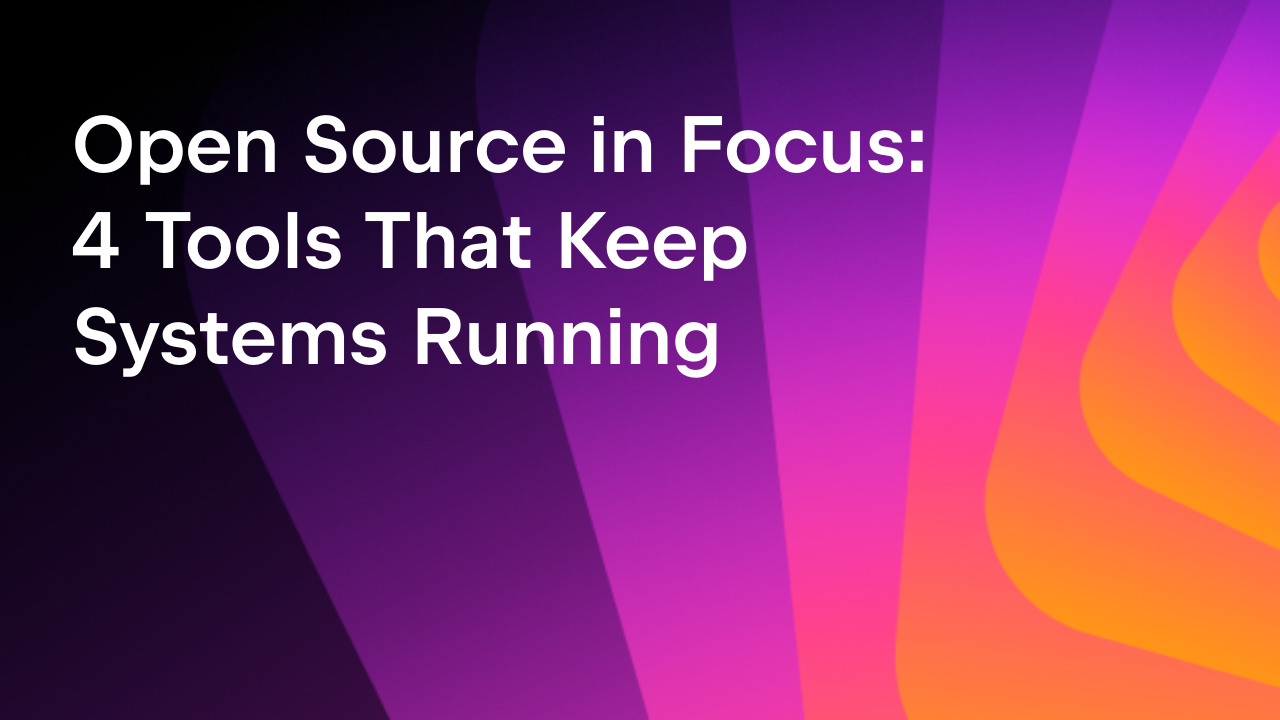Community
IntelliJ IDEA
Open Source
Open Source in Focus: How Java OSS Teams Use IntelliJ IDEA – Part 1
Read this post in other languages:
At JetBrains, we build tools to help developers stay focused and productive, and we’re especially proud when those tools help power the open-source projects that developers around the world rely on every day. Shaping the direction of Java development, such projects contribute substantially to the vibrant Java ecosystem.
This two-part series highlights some of the most impressive open-source Java projects we support. From testing frameworks and HTML parsers to innovative web libraries and languages, each of these projects reflects the creativity and ingenuity of the Java community. In each case, JetBrains IDEs like IntelliJ IDEA help developers ship faster, work more confidently, and write better code.
Spring Framework
The world’s most popular Java framework.
Spring needs little introduction. It’s the backbone of modern Java server-side development, with a strong focus on simplicity, productivity, and the developer experience. JetBrains shares those values, and the close collaboration between the Spring and JetBrains teams promotes synergies for server-side developers worldwide.
Feedback from the Spring team helps ensure IntelliJ IDEA offers a seamless, intuitive experience for Spring developers – even as new features are introduced. Kotlin also continues to shape Spring’s direction: null-safety support introduced in Spring Framework 5 is evolving in version 7 with JSpecify annotations, benefiting both Java and Kotlin users.
— Sébastien Deleuze, Spring Framework core committer
The Spring community is now focusing on Spring AI – an application framework that brings Spring’s principles of modularity and portability to the AI domain using familiar POJO (Plain Old Java Object) patterns, with support for both Java and Kotlin. The team also continues to invest in runtime efficiency through GraalVM native image support, Project Leyden JVM optimizations, and clever defaults in Spring Boot. Mature parts of the framework are evolving too, with features like client-side API versioning on the way.
Play Framework
A high-performance, developer-friendly web framework for Scala and Java.
The Play Framework is trusted for a wide range of applications, including high-traffic news platforms and national tax systems. It focuses on scalability and simplicity and prioritizes the developer experience, offering built-in tooling, a reactive model, and a stateless architecture.
We primarily use IntelliJ IDEA for Play development, and it’s been fantastic. The Scala plugin offers first-class support for SBT and Scala, along with dedicated features for Play projects – like syntax highlighting and navigation for route files and Twirl templates. Scala 3 support is now very mature, and it’s clear that the JetBrains team truly cares about the Scala and Play Framework communities.
— Matthias Kurz, Play Framework maintainer
The next major Play release, expected in mid-2025, focuses on steady, thoughtful improvements. Highlights include Gradle support, enhanced Kotlin compatibility, improved WebSockets, and better support for modern web standards and database migrations. The release will also complete the transition to the Jakarta namespace, ensure compatibility with Java 25 LTS, and include upgrades to Pekko and other core dependencies.
Koin
A simple and powerful dependency injection framework for Kotlin.
Koin was created to make dependency injection in Kotlin simple, lightweight, and intuitive – especially for Android. Existing dependency injection tools were too complex and slow to compile, or they didn’t fully embrace Kotlin’s strengths. Inspired by Spring Boot and Kotlin’s expressive features, Koin introduced a clean DSL, smart defaults, and seamless integrations, providing intuitive dependency injection support.
IntelliJ IDEA is my daily go-to tool – first for Java, and even more so for Kotlin thanks to its excellent end-to-end support. That experience inspired us to create the Koin plugin: a tool that brings visual feedback, real-time safety checks, and seamless navigation for Koin definitions right into the IDE.
— Arnaud Giuliani, creator of Koin
The Koin team is actively working on version 4.1, which will bring enhanced support for Compose Multiplatform and KMP, integrated compatibility with Ktor 3.1, and a new set of Scope features. Looking ahead, version 4.2 is already in development, with a focus on deeper coroutine integration, a new Job Scheduler API, Kotlin RPC support, and further improvements to the Koin DSL.
Micronaut
A modern, lightweight framework built for fast startup and low memory use.
Micronaut was created in 2018 by the core team behind the Groovy-based Grails framework, known for its strong focus on developer productivity. The team saw an opportunity to rethink how Java frameworks handle work traditionally done at runtime. By shifting more processing to the compile phase, Micronaut dramatically reduces memory usage and startup time while maintaining a smooth, productive developer experience.
Micronaut supports Java, Kotlin, and Groovy – and IntelliJ IDEA offers first-class support for all three. Features like build delegation to Gradle or Maven, a built-in HTTP client, code coverage tools, and powerful debugging – including for GraalVM native images – make IntelliJ IDEA a great environment for developing and maintaining modern Micronaut applications.
— Sergio del Amo, Micronaut Development Leadership Panel member
Micronaut follows strict semantic versioning, reflecting its commitment to stability and modern development. The framework’s core mission remains unchanged: to deliver an excellent developer experience while minimizing memory usage and optimizing startup time, both of which have a direct impact on productivity.
OpenGrok
A fast, full-featured source code search and cross-referencing engine for large codebases.
OpenGrok helps developers understand and navigate large, complex codebases across multiple languages and version control systems. The tool has evolved into a powerful, extensible search platform used by engineering teams worldwide.
We recently explained to a colleague why we use IntelliJ IDEA. It really helps us work more efficiently – for example, we can debug JSPs directly in a Tomcat instance running from the IDE, view runtime graphs, and use powerful refactoring tools.
— Ľuboš Koščo and Vladimír Kotal, OpenGrok maintainers
The OpenGrok development team is currently focusing on boosting performance and stability, particularly for large datasets. This involves reducing the amount of indexing data to run OpenGrok efficiently in lightweight Docker containers and phasing out the JavaBeans serialization format. Looking further ahead, the team aims to improve support for binary file formats and explore the possibility of adding new analyzers to extend OpenGrok’s capabilities.
Check out Part 2, where we dive into more projects. In the meantime, feel free to explore the recordings from IntelliJ IDEA Conf 2025 – our recent online event celebrating modern Java development. From in-depth technical talks to personal insights from long-time users, the sessions are now available to watch at your own pace.
More from this series

Open Source in Focus: 4 Low-Level Developer Tools Maintained With CLion
From the beginning, CLion has been shaped by the needs of C and C++ developers around the world. Our cross-platform IDE was built to simplify development, boost productivity, and make working with C++ more enjoyable.
We’re excited to take the next step in our ongoing collaboration with the commun…
Read the post
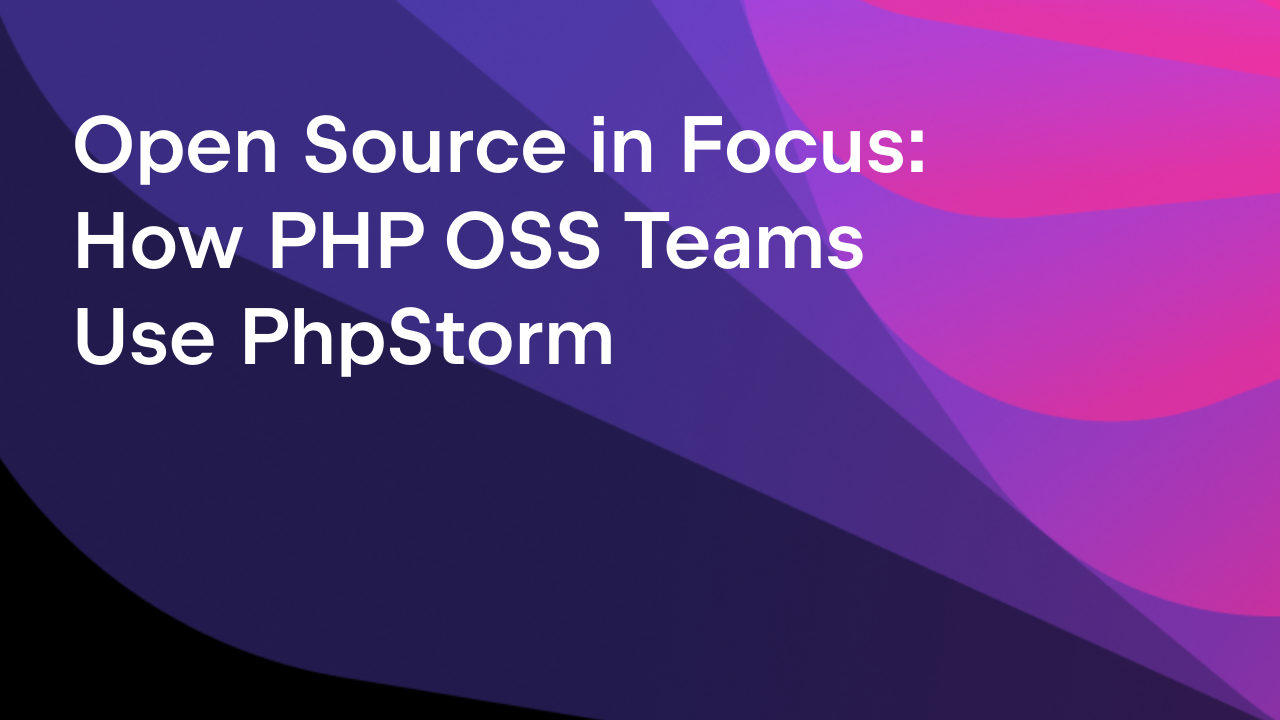
Open Source in Focus: How PHP OSS Teams Use PhpStorm
The PHP ecosystem is driven by passionate developers building tools that power everything from content management systems right the way through to testing libraries and database layers. Behind each project is a dedicated team working to modernize code, improve performance, and move the ecosystem for…
Read the post
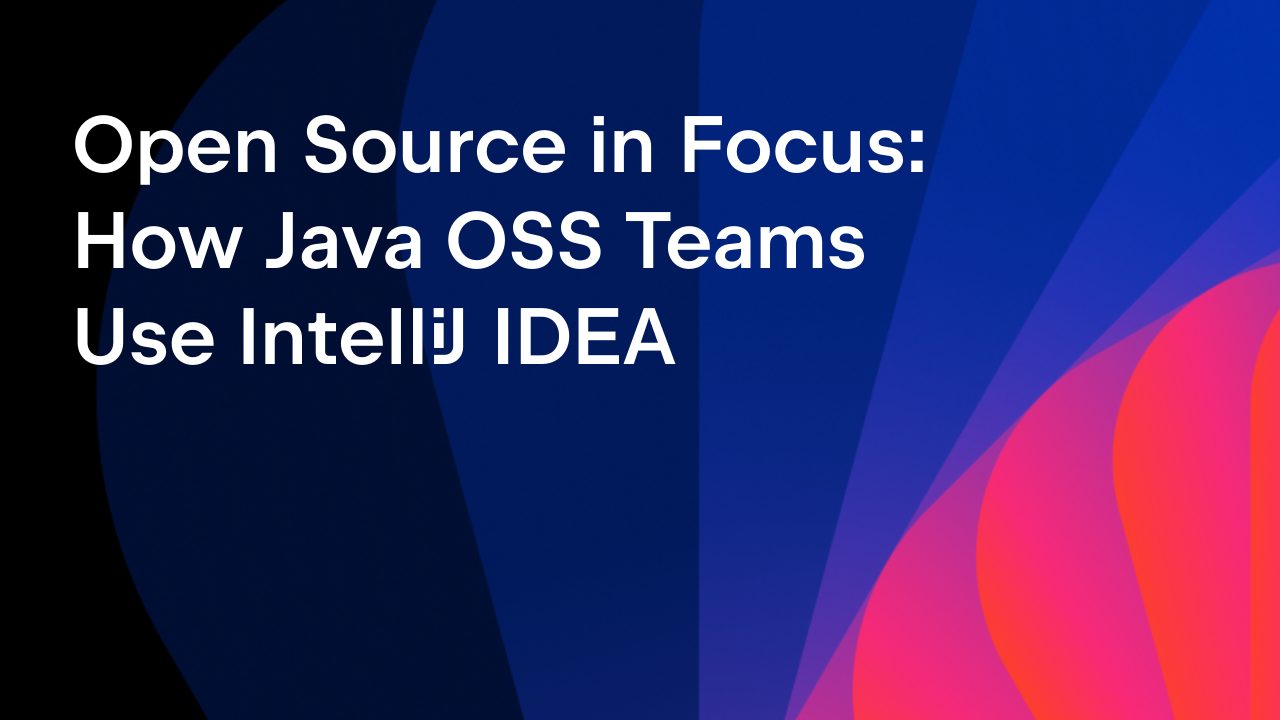
Open Source in Focus: How Java OSS Teams Use IntelliJ IDEA – Part 2
In Part 1 of this series, we introduced some of the Java community’s most recognized open-source projects. Now, we’re back with more standouts: projects that speed up builds, strengthen testing, and simplify working with modern web stacks. And as always, IntelliJ IDEA helps maintainers move faster, …
Read the post
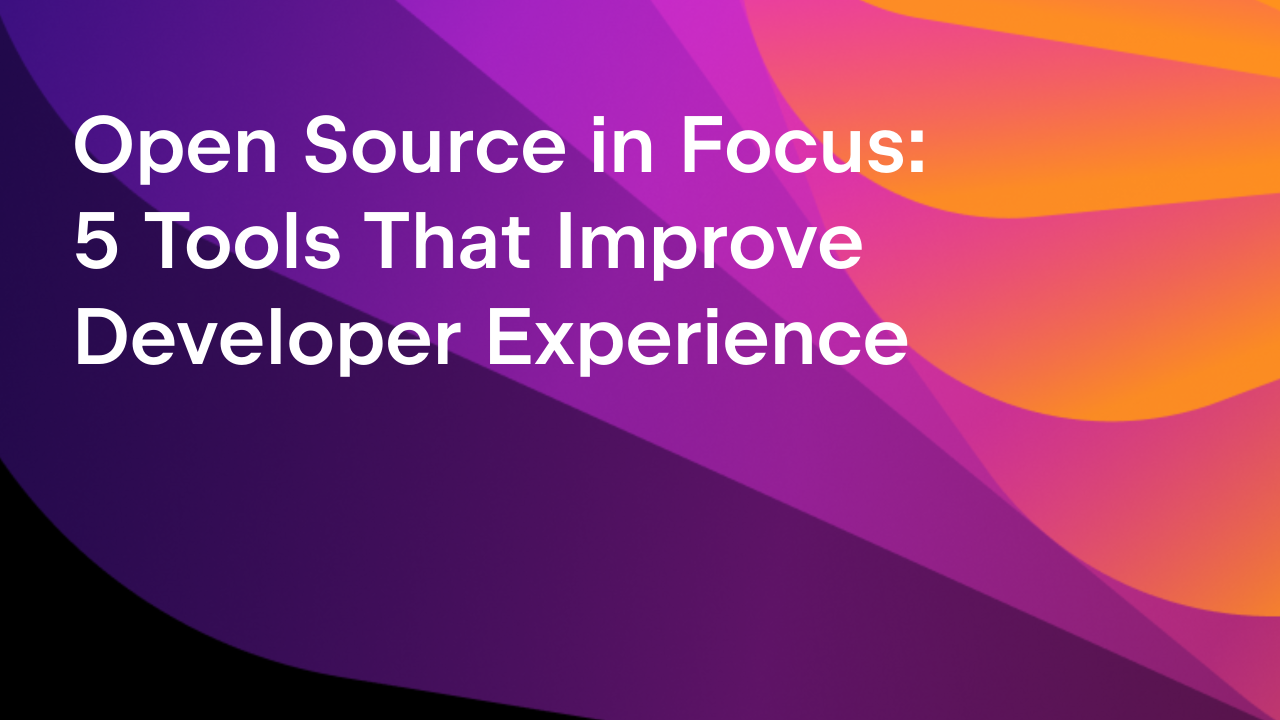
Open Source in Focus: 5 Tools That Improve Developer Experience
At JetBrains, we love seeing the developer community grow and thrive. That’s why we support open-source projects that make a real difference — the ones that help developers learn, build, and create better software together. We’re proud to back open-source maintainers with free licenses and to contri…
Read the post






